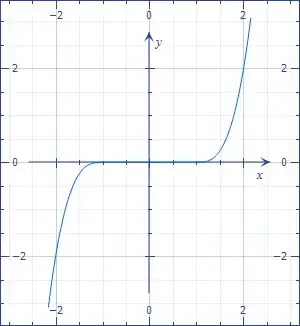When solving separable differential equations we divide both sides of the equation by the part containing our function y. When dividing, we have to separately check the case when we would divide by zero. For example: $$y' = 3y^{2/3}$$ $$\int y^{-2/3}dy = \int 3dx$$ $$y^{1/3} = x + C$$ $$y = (x+C)^3$$ This is the general solution. We also have to check the case of $y^{2/3} = 0 \Rightarrow y' = 0$. Function $y(x) = 0$ is a separate solution.
The question is why can't there be a solution where $y=0$ only for a few values of x, but not for all of them? Why do we only check the constant zero function?
I have read some similar questions on this topic and usually the answer is that for every point on the xy plane there is only one solution through this point. But I don't understand why that is true for every differential equation, for example for this one?
